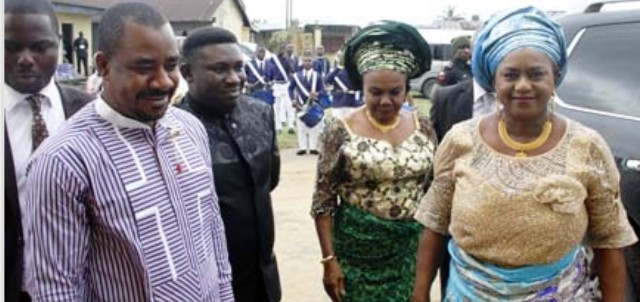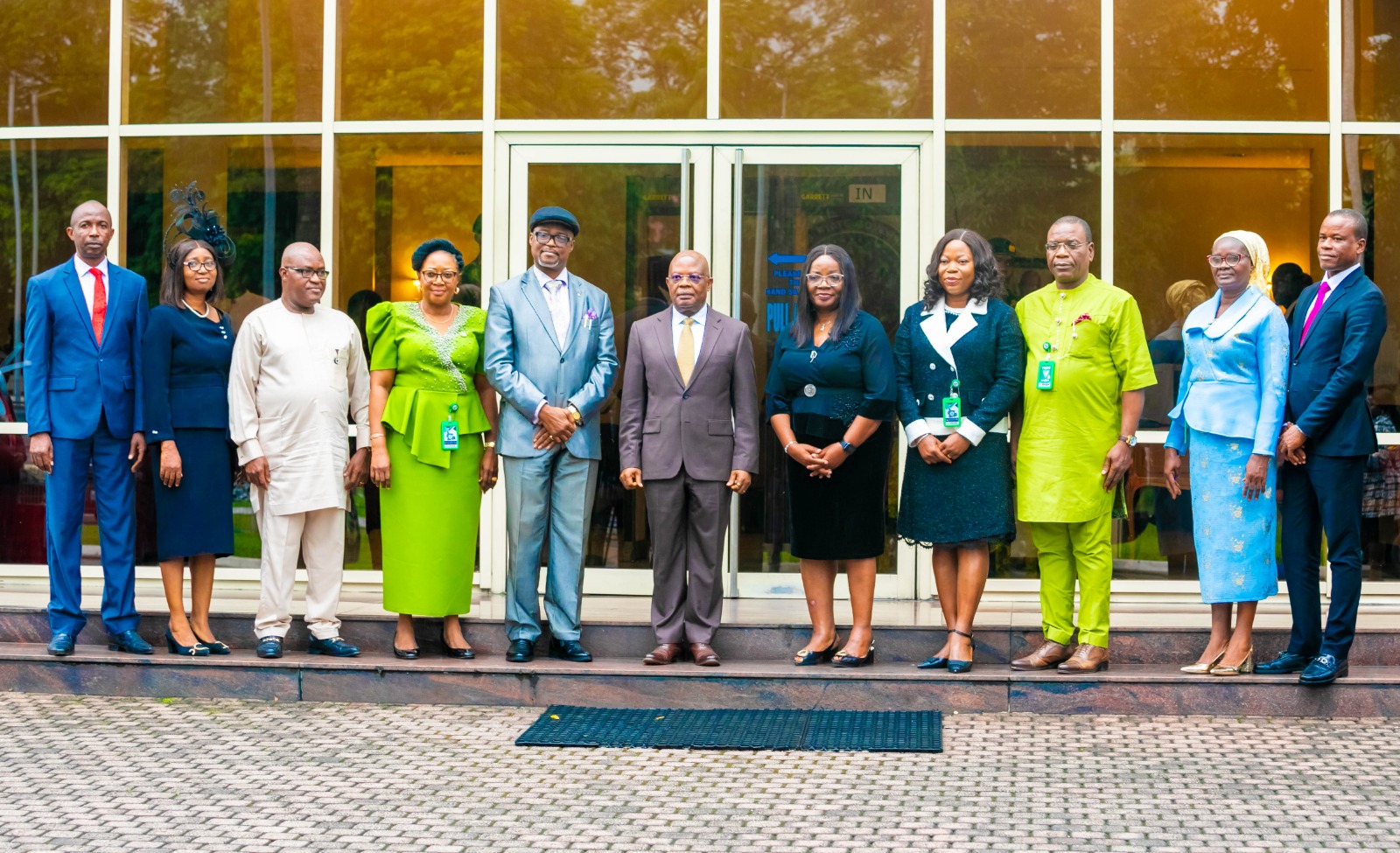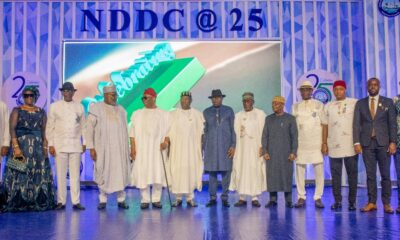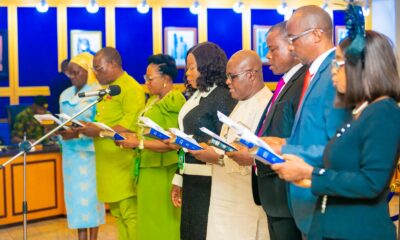Featured
N’Delta Youth Peace, Security Confab, Soon …President, Nine Govs, Others Expected

Barring last minute changes, all is now set for the convening of the conference of the Supreme Niger Delta Youth Council Worldwide (SNDYCW) this month to address the critical issues causing tension and angst in the Niger Delta.
The SNDYCW, said yesterday that the event, conceptualised as the “First Niger Delta Youth Peace, Unity, Security, Reconciliation and Empowerment Conference”, will hold in Benin City, the Edo State capital, September 28 – 30, 2016.
National President, SNDYCW, Prince Michael Newgent Ekamon, who disclosed this in a statement in Abuja, made available to The Tide, explained that the conference was designed as a convergence of stakeholder youth groups to harness dialogue rather than show of force against the Federal Government in resolving the Niger Delta question.
The conference, facilitated by Minister of Niger Delta Affairs, Usani Uguru Usani; Minister of State, Petroleum Resources, Dr Ibe Kachikwu; and Coordinator and Special Adviser, Presidential Amnesty Programme, Brig-Gen Paul Boroh, has as its theme: Eradication of Youth Restiveness in the Nine Niger Delta States Through Economic Empowerment as Mechanism for Sustainable and Rapid Development of the Region”.
Ekamon explained that while the “Edo State Governor, Comrade Adams Oshiomhole has graciously accepted to be the chief host for the conference which holds from September 28-30, 2016, from 10 am each day, governors from the other eight states are equally co-chief hosts.
“We expect, President Muhammadu Buhari to grace the conference as chief guest of honour. We are expecting international guests, international observers and other stakeholders. Other details will be announced as soon as there are perfected,” Ekamon emphasised.
According to the statement, the group will use the platform to push the Federal Government to show serious commitment to the sustainable peace and development of the Niger Delta region, and urged those who have branded themselves as militants and violent agitators to embrace dialogue and table their grievances on the table at the forum.
It particularly called on the Niger Delta Avengers, and other criminal elements in the region to toe the path of dialogue and negotiate with the Federal Government rather than resort to the destruction of the precious environment and ecosystems of the region in the name of efforts to ground the government, insisting that the long-term negative impact of their action would affect the present and future generations of the region more than the government and other Nigerians.
The group also dismissed Chief Edwin Clark’s claim as leader of the Niger Delta, saying that Clark was only the leader of some people of Ijaw stock, and not the entire Niger Delta.
“The so-called Niger Delta Avengers should be regarded as economic criminals and prosecuted”, Ekamon said, adding that, “We cannot continue doing things in the same old ways and expect changes.
“The presence of Chief Edwin Clark claiming to be chief negotiator for this faceless group is equally exasperating and offensive to the sensibilities of all right thinking Niger Deltans. We, members of SNDYCW reject him completely”
“We, Niger Delta youth cannot sit by and watch our common wealth being frittered away to serve the interest of a few. Clark should rather be telling us what he and our so-called other leaders had been doing with Federal Government interventions in the Niger Delta so far”, Ekamon maintained.
Ekamon, equally dismissed the alleged choice of Prof. Wole Soyinka and former governor of Abia State, Chief Orji Uzor Kalu as negotiators for the Niger Delta Avengers.
“We respect the fact that Prof Wole Soyinka is a literary figure and international personality, but we are not aware of his empathy or passion for the Niger Delta region.
As for Chief Orji Uzor Kalu, the man is an interloper and an inconsistent politician. Therefore, we do not see how these two gentlemen can adequately represent the Niger Delta. They do not have Niger Delta in mind; they have never been interested in the Niger Delta, so how can they understand the people’s pains and grievances. Selecting these two to represent them makes the motives of the Niger Delta Avengers suspicious”, Ekamon added.
He, therefore, urged all aggrieved Niger Deltans, including those who call themselves agitators or militants, to take advantage of the opportunity to ventilate their views on the way forward for the region.
Featured
Rivers A Strategic Hub for Nigeria’s Blue Economy -Ibas …Calls For Innovation-Driven Solutions

The Administrator of Rivers State, Vice Admiral (Rtd.) Ibok-Ete Ibas, has emphasized the need for innovation-driven strategies, strategic partnerships, and firm policy implementation to fully harness the vast potential of the blue economy.
Speaking during a courtesy visit by participants of Study Group 7 of the Executive Course 47 from the National Institute for Policy and Strategic Studies (NIPSS) at Government House, Port Harcourt, on Monday, Ibas highlighted the importance of diversifying Nigeria’s economy beyond oil by leveraging maritime resources to create jobs, enhance food security, strengthen climate resilience, and generate sustainable revenue.
The Administrator, according to a statement by his Senior Special Adviser on Media, Hector Igbikiowubo, noted that with coordinated efforts and innovative solutions, the blue economy could serve as a catalyst for inclusive growth, economic stability, and long-term environmental sustainability.
“It is estimated that a fully developed blue economy could generate over $296 million annually for Nigeria, spanning fisheries, shipping and logistics, marine tourism, offshore renewable energy, aquaculture, biotechnology, and coastal infrastructure,” he stated.
“We must transition from extractive practices to regenerative, inclusive, and innovation-driven solutions. This requires political cohesion, intergovernmental collaboration, robust infrastructure, and institutional capacity—all of which must be pursued with urgency and intentionality,” he added.
Ibas urged sub-national governments, particularly coastal states, to domesticate the national blue economy framework and develop tailored strategies that reflect their comparative advantages.
He stressed that such efforts must be guided by disciplined planning, regulation, and investment to maximize the sector’s potential.
Highlighting Rivers State’s pivotal role, the Administrator outlined its strategic advantages as follows:
•Nearly 30% of Nigeria’s total coastline (approximately 853km)
•Over 40% of Nigeria’s crude oil and gas output
•More than 33% of the country’s GDP and foreign exchange earnings
•416 of Nigeria’s 1,201 oil wells, many located in marine environments
•Two of Nigeria’s largest seaports, two oil refineries, and the Nigerian Liquefied Natural Gas (NLNG) terminal in Bonny Island—one of Africa’s most advanced gas facilities
Despite these opportunities, Ibas acknowledged challenges such as pollution, coastal erosion, illegal oil refining, unregulated fishing, inadequate infrastructure, and maritime insecurity.
He reaffirmed his administration’s commitment to institutional reforms, coastal zone management, and inter-agency collaboration to build a governance structure that supports a sustainable blue economy.
“Sustainability must be embedded in our development models from the outset, not as an afterthought. We are actively exploring partnerships in maritime education, aquaculture development, port modernization, and renewable ocean energy. We welcome knowledge-sharing engagements like this to refine our strategies and enhance implementation,” he said.
He urged the NIPSS delegation to ensure their findings translate into actionable recommendations that address the sector’s challenges.
Leader of the delegation, Vice Admiral A.A. Mustapha, explained that the visit aligns with their strategic institutional tour mandate on the 2025 theme: “Blue Economy and Sustainable Development in Nigeria: Issues, Challenges, and Opportunities.”
The group is engaging stakeholders to deepen understanding of policy efforts and institutional roles in advancing sustainable development through the blue economy.
Featured
INEC To Unveil New Party Registration Portal As Applications Hit 129

The Independent National Electoral Commission (INEC) has announced that it has now received a total of 129 applications from associations seeking registration as political parties.
The update was provided during the commission’s regular weekly meeting held in Abuja, yesterday.
According to a statement signed by the National Commissioner and Chairman of the Information and Voter Education Committee, Sam Olumekun, seven new applications were submitted within the past week, adding to the previous number.
“At its regular weekly meeting held today, Thursday 10th July 2025, the commission received a further update on additional requests from associations seeking registration as political parties.
“Since last week, seven more applications have been received, bringing the total number so far to 129. All the requests are being processed,” the commission stated.
The commission revealed the introduction of a new digital platform for political party registration. The platform is part of the Party Financial Reporting and Auditing System and aims to streamline the registration process.
Olumekun disclosed that final testing of the portal would be completed within the next week.
“INEC also plans to release comprehensive guidelines to help associations file their applications using the new system.
“Unlike the manual method used in previous registration, the Commission is introducing a political party registration portal, which is a module in our Party Financial Reporting and Auditing System.
“This will make the process faster and seamless. In the next week, the commission will conclude the final testing of the portal before deployment.
“Thereafter, the next step for associations that meet the requirements to proceed to the application stage will be announced. The commission will also issue guidelines to facilitate the filing of applications using the PFRAS,” the statement added.
In the meantime, the list of new associations that have submitted applications has been made available to the public on INEC’s website and other official platforms.
Featured
Tinubu Signs Four Tax Reform Bills Into Law …Says Nigeria Open For Business

President Bola Tinubu yesterday signed into law four tax reform bills aimed at transforming Nigeria’s fiscal and revenue framework.
The four bills include: the Nigeria Tax Bill, the Nigeria Tax Administration Bill, the Nigeria Revenue Service (Establishment) Bill, and the Joint Revenue Board (Establishment) Bill.
They were passed by the National Assembly after months of consultations with various interest groups and stakeholders.
The ceremony took place at the Presidential Villa, yesterday.
The ceremony was witnessed by the leadership of the National Assembly and some legislators, governors, ministers, and aides of the President.
The presidency had earlier stated that the laws would transform tax administration in the country, increase revenue generation, improve the business environment, and give a boost to domestic and foreign investments.
“When the new tax laws become operational, they are expected to significantly transform tax administration in the country, leading to increased revenue generation, improved business environment, and a boost in domestic and foreign investments,” Special Adviser to the President on Media, Bayo Onanuga said on Wednesday.
Before the signing of the four bills, President Tinubu had earlier yesterday, said the tax reform bills will reset Nigeria’s economic trajectory and simplify its complex fiscal landscape.
Announcing the development via his official X handle, yesterday, the President declared, “In a few hours, I will sign four landmark tax reform bills into law, ushering in a bold new era of economic governance in our country.”
Tinubu made a call to investors and citizens alike, saying, “Let the world know that Nigeria is open for business, and this time, everyone has a fair shot.”
He described the bills as not just technical adjustments but a direct intervention to ease burdens on struggling Nigerians.
“These reforms go beyond streamlining tax codes. They deliver the first major, pro-people tax cuts in a generation, targeted relief for low-income earners, small businesses, and families working hard to make ends meet,” Tinubu wrote.
According to the President, “They will unify our fragmented tax system, eliminate wasteful duplications, cut red tape, restore investor confidence, and entrench transparency and coordination at every level.”
He added that the long-standing burden of Nigeria’s tax structure had unfairly weighed down the vulnerable while enabling inefficiency.
The tax reforms, first introduced in October 2024, were part of Tinubu’s post-subsidy-removal recovery plan, aimed at expanding revenue without stifling productivity.
However, the bills faced turbulence at the National Assembly and amongst some state governors who rejected its passing in 2024.
At the NASS, the bills sparked heated debate, particularly around the revenue-sharing structure, which governors from the North opposed.
They warned that a shift toward derivation-based allocations, especially with VAT, could tilt fiscal balance in favour of southern states with stronger consumption bases.
After prolonged dialogue, the VAT rate remained at 7.5 per cent, and a new exemption was introduced to shield minimum wage earners from personal income tax.
By May 2025, the National Assembly passed the harmonised versions with broad support, driven in part by pressure from economic stakeholders and international observers who welcomed the clarity and efficiency the reforms promised.
In his tweet, Tinubu stressed that this is just the beginning of Nigeria’s tax evolution.
“We are laying the foundation for a tax regime that is fair, transparent, and fit for a modern, ambitious Nigeria.
“A tax regime that rewards enterprise, protects the vulnerable, and mobilises revenue without punishing productivity,” he stated.
He further acknowledged the contributions of the Presidential Fiscal Policy and Tax Reform Committee, the National Assembly, and Nigeria’s subnational governments.
The President added, “We are not just signing tax bills but rewriting the social contract.
“We are not there yet, but we are firmly on the road.”
-
News1 day ago
NOA Set To Unveil National Values Charter — D-G
-
Politics1 day ago
2027: Group Vows To Prevail On Diri To Dump PDP For APC
-

 Features1 day ago
Features1 day ago25 Years After: NDDC Celebrates Milestones Of Impactful Development
-
Business1 day ago
NCDMB Promises Oil Industry Synergy With Safety Boots Firm
-

 News1 day ago
News1 day agoRivers Police Arrest Notorious Cultist, Recover Sophisticated Ammunition
-
Niger Delta1 day ago
Adopt African System Against Crime, Don Urges Security Agencies
-

 News1 day ago
News1 day agoIbas Inaugurates RSIEC, Service Commissions, Healthcare Board In Rivers …Charges Appointees To Embrace Principles Of Service
-
Rivers1 day ago
Monarch Cautions Youths Against Illicit Drug Consumption

